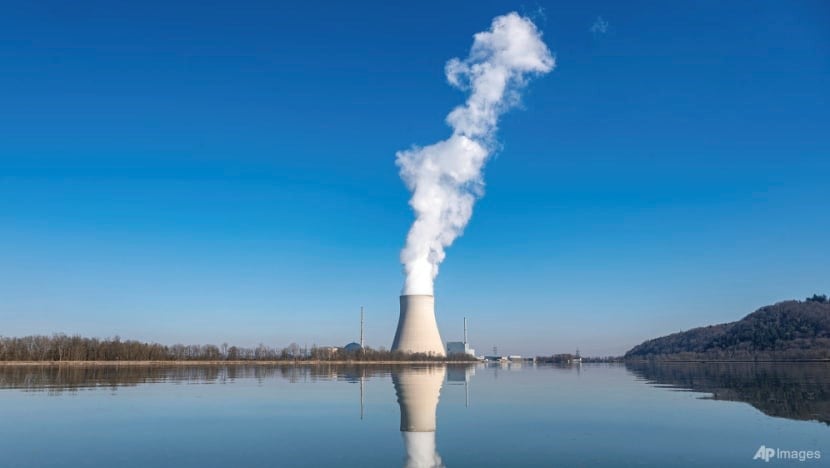Energy crisis pushes nuclear comeback worldwide
As countries become more desperate for energy alternatives, some are heading toward nuclear power.
-
![The nuclear power plant Isar 2 is pictured in Essenbach, Germany on Mar 3, 2022. (File photo: Armin Weigel/dpa via AP)]()
The nuclear power plant Isar 2 pictured in Essenbach, Germany on Mar 3, 2022 (AP)
Nuclear power is becoming more popular as countries look for alternatives with the cost of importing energy growing globally and climate crises causing devastation.
The Fukushima disaster in Japan in 2011—the worst nuclear accident since Chernobyl in 1986—led to a drop in nuclear power investment as governments ran terrified and safety concerns grew. However, the tide is now shifting back in favor of nuclear power after Moscow’s operation in Ukraine, the ensuing squeeze on energy supplies, and Europe’s push to wean itself off of Russian oil and gas.
With rising gas and power prices and limited resources likely to result in widespread hardship this winter, governments must make difficult decisions.
Read next: Kiev using toxic agents against Russian military in Zaporozhye: Moscow
Some experts contend that nuclear power should not be a viable alternative, while others contend that given the prevalence of crises, it must continue to be a component of the global energy mix.
Although 32 countries presently use nuclear energy to produce 10% of the world’s electricity, the International Atomic Energy Agency (IAEA) boosted its predictions for the first time since the 2011 tragedy in September. The IAEA now expects installed capacity to double by 2050 under the most favorable scenario.
Read next: Ukrainian troops open fire at Zaporozhye NPP: Enerhodar Authorities
Climate reasoning
Even in Germany, the largest economy in Europe, the topic of continuing with nuclear energy is no longer a taboo as the energy crisis reignites discussion over closing the nation’s final three nuclear power reactors by the end of 2022.
Berlin stated last month that it will wait for the results of a national power grid “stress test” before determining whether to continue with the phaseout.
Greenpeace Germany’s climate and energy expert, Gerald Neubauer, said turning to nuclear was “not a solution to the energy crisis.”
He claimed that since Russian gas is primarily “used for heating” in Germany rather than for the generation of electricity, so nuclear energy would only have “limited” efficacy in replacing it.
Divided opinions
With the increase in demand for power, a number of nations have declared a desire to build nuclear infrastructure, including China, which already has the most reactors, the Czech Republic, India, and Poland since nuclear energy provides an alternative to coal.
Similar goals are shared by the United Kingdom, France, the Netherlands, and even the United States, where President Joe Biden’s investment plan promotes the growth of the sector.
Read next: France to Build New Nuclear Reactors
Due to the possibility of catastrophic accidents and the ongoing debate over how to adequately dispose of radioactive waste, IPCC experts acknowledge that the use of nuclear energy “can be constrained by societal preferences.”
Some countries, like New Zealand, oppose nuclear, and the issue has also been hotly debated in the European Union over whether it should be listed as “green” energy.
Read more: A messy nuclear slowdown for Europe

